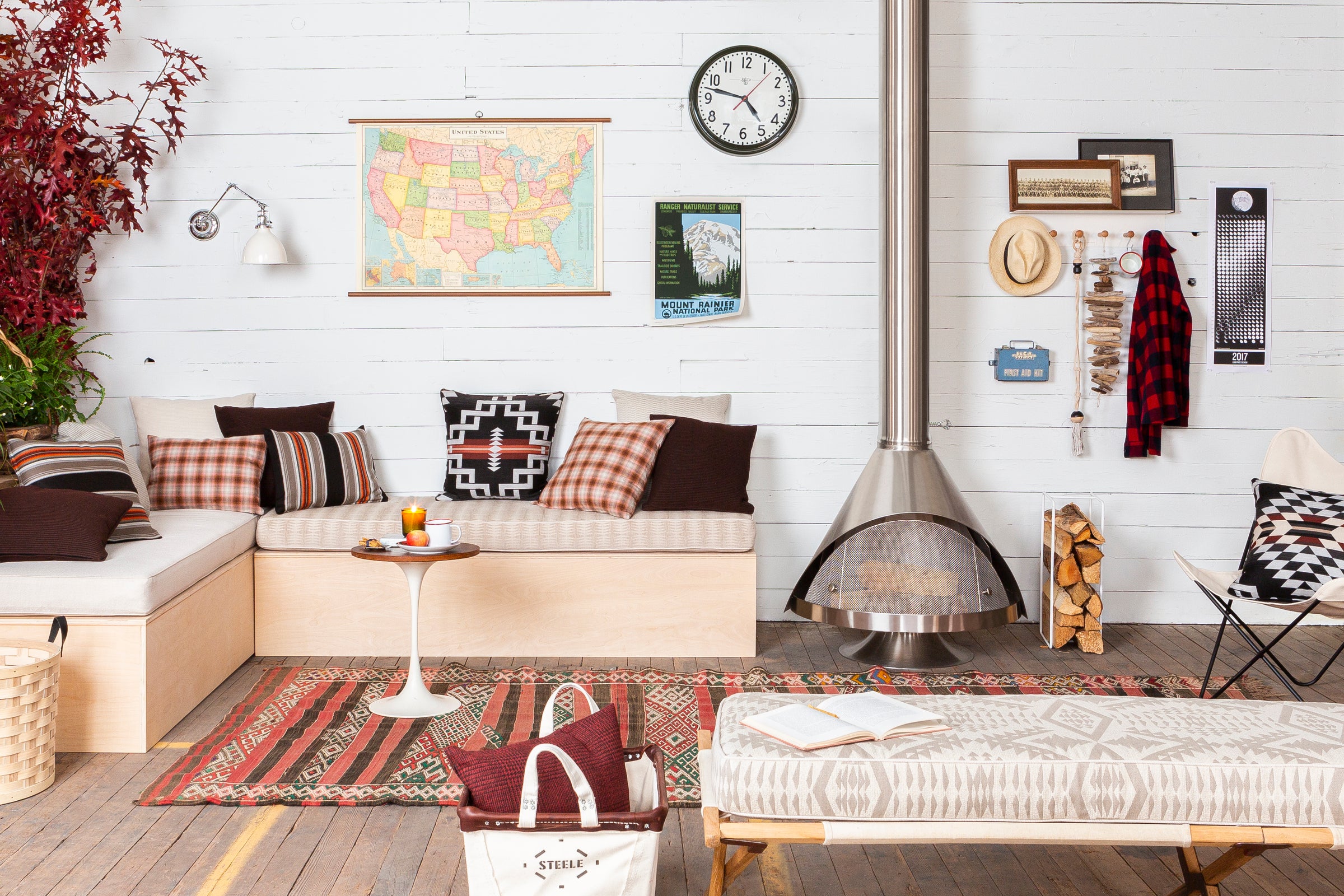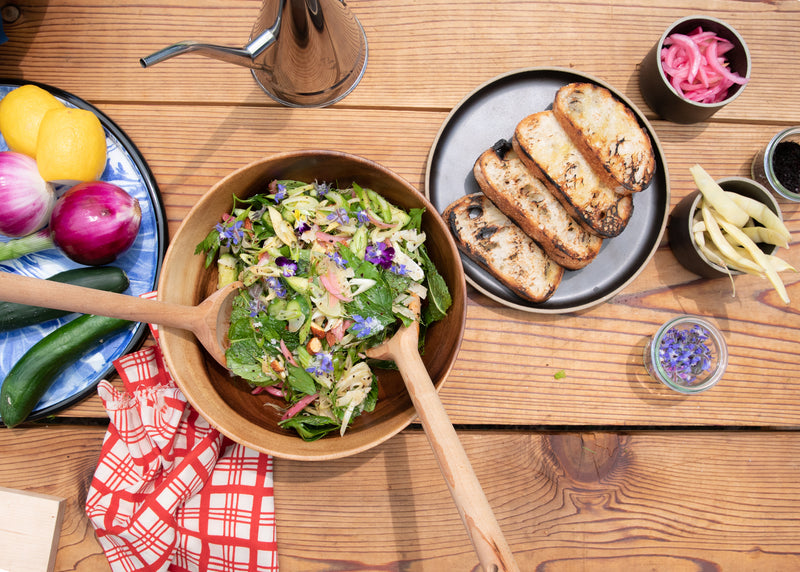How-To: Modern Americana with Max Humphrey

Frank, fun, and full of character, there's a reason why so many have turned to designer Max Humphrey for interior inspiration. A (former) bass player, art director, and self-proclaimed vintage hoarder, Max’s signature layered and lived-in look celebrates nostalgic collectibles and DIY style. Alongside his many talents, he’s most recently added author to his repertoire. Below, Max takes us through a few tips from his book, Modern Americana, and teaches how to use thrifted finds to create an inspired home.
1. Mix Beats Match
There’s a quote on my website, “Style is knowing who you are, what you want to say, and not giving a damn.” If you love it, don't stop to think if you have a place for it. Just buy it and make room for it.
"If you love it, there will always be a place for it."
Pictured above is a mid-century chair with a French Settee and a 70s rattan ottoman. The rug is Turkish, and the vintage thermos are found pieces from different eras. The tip is, there’s no tip when it comes to mixing styles. If you like each piece individually, don’t overthink it.


2. Form + Function
When I’m designing a home for anyone, I start by asking how they live. Are they homebodies or do they host dinner parties every other week? Do they have kids or pets or both? It’s less about form and function and more about how the room is going to be used.
In this beach house, I added family-friendly fabrics and furniture so it wouldn’t be an issue when kids walked in with peanut-butter jelly hands or trekked sand everywhere.
3. Color Outside the Lines
One of the first steps when it comes to designing, is to explore a color palette, which can be overwhelming at first. When in doubt, I often ask clients to look in their closet and see what colors they're drawn to. Living in Oregon, nature is a big inspiration for me, so you'll see lots of greens and blues pop up in the spaces I design.
In the nook above, I used the same paint color (Benjamin Moore Tate Olive), but a different sheen. The wall is matte while the cabinetry has a little bit of a sheen. I always paint woodwork slightly shiny (it looks weird if it’s matte) and walls flat.
4. Look Locally
Good design is right outside your door. Portland is full of design resources, and I prefer to shop local whenever possible. Beyond finding custom furniture, you can often source building materials — like Oregon walnut — locally as well. At the end of the project, you not only have a well-designed table, you also have a great sourcing story behind it, which I find is the type of stuff that's fun to talk about when you have friends or family over.


I’m always collecting something and vintage grain sack was a recent collection obsession. There’s something about them – they’re like 80-year-old linen hemp and were so soft from age and use. For my bedroom (pictured left), I literally stuffed a bunch of down pillow inserts.
In my reading nook (pictured right), I bought fabric shirting yardage from Pendleton Woolen Mill store and used it for the drapery as well as upholstery for this vintage chair.

5. Design is Nostalgia
What’s more American than sitting in school and staring at the clock, waiting for class to end? I have to have a clock in every bathroom and kitchen. It’s so much nicer not to check your phone when you’re getting in and out of the shower. Plus, iPhone, tile, and water is a disaster waiting to happen.

One of my favorites is the IBM clock. They were made in the '40s, became popular in the ’60s, and were often used in educational settings — you can often spot originals in schools or libraries. Vintage shops are often full of clocks, but you can just as easily find a reproduction that actually works.


People are used to “buy it now” and instant order deliveries, but good design takes time. Interior design is not like it is on social media where there’s a big reveal at the end and it's over. Most of my projects take many months, some take many years, and the really good ones never actually end.







